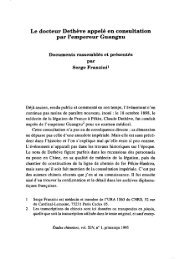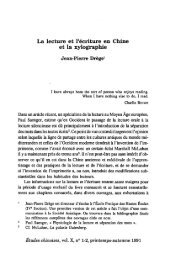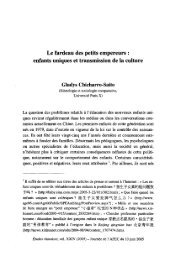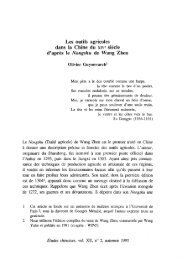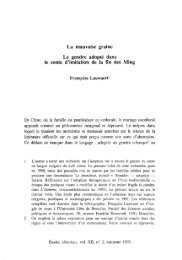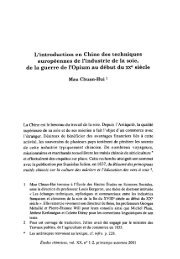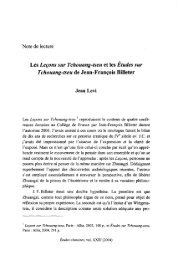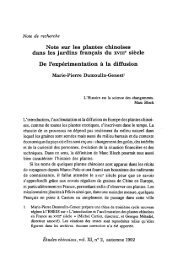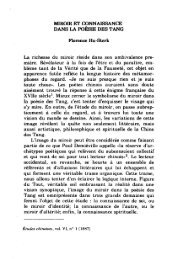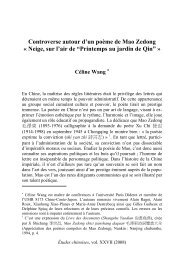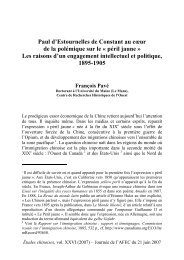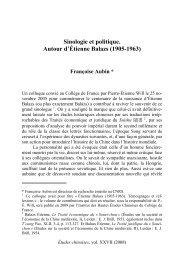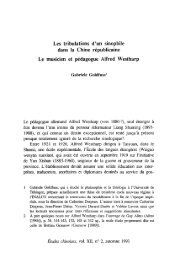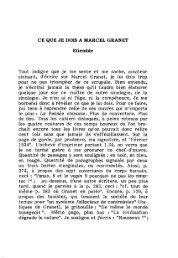Create successful ePaper yourself
Turn your PDF publications into a flip-book with our unique Google optimized e-Paper software.
Comptes rendus<br />
lights the continuities with the pre-1949 period, arguing that much of the<br />
root cause of Red Guard violence during the Cultural Révolution can be<br />
understood in thèse terms.<br />
The final three chapters of Peasants Without the Party concentrate<br />
more on the peasants interaction with the CCP, though more frorn the<br />
perspective of the peasant. As already noted, Chapter 11 considers the rôle<br />
of the peasantry during the War of Résistance to Japan, 1937-1945. This is<br />
a masterful summary of the revisionist post-Cultural Révolution research<br />
to the early 1990s that finally should set to rest once and for ail the notion<br />
that peasants were 'revolutionary' at that time, and that poorer peasants<br />
were somehow more revolutionary than others. Drawing on the research of<br />
Chen Yung-fa, Gregor Benton, and the contributors to the collection edited<br />
by Kathleen Goldstein and Steven Goldstein (Single Sparks) Bianco highlights<br />
me reluctance of the peasantry to be involved in the CCP's révolution<br />
rather than their willing participation. (Or even according to Ralph<br />
Thaxton - in China Turned Rightside Up - the totally flawed argument<br />
that the CCP was itself radicalised by the local peasantry of North China.)<br />
More récent research by Odoric Wou (Mobilizing the Masses) Pauline<br />
Keating (Two Révolutions) and others (many of whom hâve written in<br />
Feng Chongyi's edited collection North China at War) does not substantially<br />
alter this analysis, merely emphasising Bianco's point about the<br />
centrality of the CCP to the revolutionary procès s.<br />
In his considération of peasant résistance to the state after the Mao<br />
dominated era of China's politics (Chapter 12 and Chapter 13) Bianco<br />
returns to the mêmes that hâve already been encountered. The historical<br />
continuities of rural violence are ail too clear, but so too is the rôle of<br />
political authority in determining the shape and trajectory of peasant résistance.<br />
In the reform era this has become an important argument to keep in<br />
mind, for some académie commentators hâve once again turned to the<br />
peasantry as agents of progressive social change. In his considération of<br />
the analysis of both Daniel Kelliher (Peasant Power in China) and Kate<br />
Zhou (How the Farmers Changea China), Bianco has avoided throwing<br />
me baby out with the bathwater, but urges caution. The peasants may hâve<br />
extended and even to some extent radicalised the reform process in rural<br />
549



